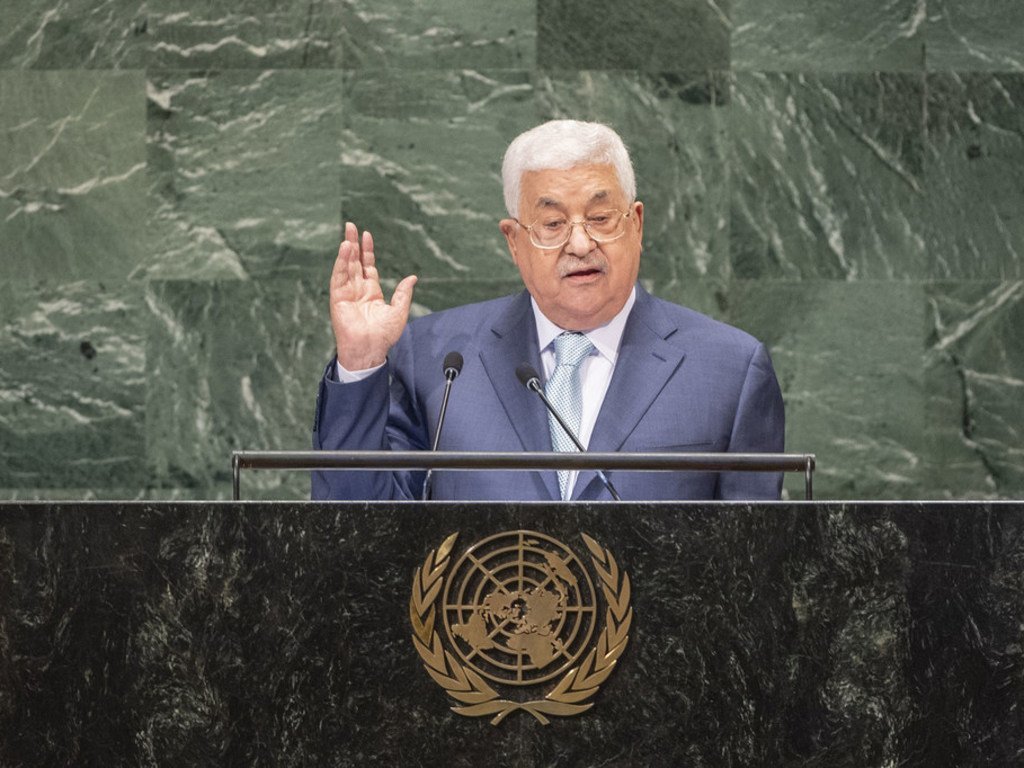IN THE MEDIA
Why ALP’s call to recognise Palestine is based on ignorance
June 21, 2023 | Colin Rubenstein & Jamie Hyams

The Australian – 21 June 2023
It appears that, when it comes to Israel, elements of the ALP would rather play counter-productive undergraduate politics than make any serious contribution to Middle East peace. The motion passed at the weekend’s Victorian State Labor Conference, calling for the Federal Government to recognise a state of Palestine within this term of federal parliament is phrased as saving the two-state solution. In reality, however, resolutions, such as this are setbacks to the peace process.
The crucial fact, which this motion clearly ignores, is that the reason there is no peace is the intransigence of the Palestinian leadership, which has rebuffed all efforts to achieve a two-state resolution.
The Palestinian Authority simply walked away from generous offers of statehood from Israel in 2000, 2001 and 2008 without even making a counteroffer, even though these met all the internationally accepted parameters for a two-state peace. The 2008 offer, for example, gave the Palestinians land equivalent to all of the West Bank and Gaza, a capital in east Jerusalem, control of all Muslim holy sites and a limited return of refugees, with financial compensation for the rest.
Meanwhile Hamas turned Gaza into a terror enclave after Israel totally withdrew from the territory in 2005 in the hope of encouraging peaceful coexistence.
Israel’s subsequent attempts at confidence-building measures, such as freezing settlement building or the releasing Palestinian prisoners with blood on their hands, were similarly spurned. According to US envoy Martin Indyk, Benjamin Netanyahu was “sweating bullets” to make a deal at talks in 2014, but PA President Mahmoud Abbas again simply walked away.
The PA continues to insist on a legally baseless right of return, not just of the refugees from the 1948 war, but of all their millions of descendants. This is unprecedented for any other refugee population and is completely incompatible with the formula of two states for two peoples, as it could mean the end of Israel as a Jewish state.
Since 2014, the PA has refused to even talk, instead pursuing a long-term strategy of subjecting Israel to continuous terrorism, while demonising it at all available international forums. While the PA no longer actively engages in terrorism directly, it certainly encourages it. PA leaders constantly incite against Israel, and often Jews, in the most virulent terms, terrorists are lionised, even having streets names after them, and generous lifetime pensions are given to terrorists who end up in Israeli jails, and to the families of those who are killed.
They hope to ultimately replace Israel with a Palestinian state rather than have one living in peace alongside it. This is simply a recipe for perpetual conflict.
This history shows that if a respected democratic middle power such as Australia prematurely recognises a Palestinian state, that would be extremely counter-productive. Rewarding the Palestinians’ destructive strategy will only encourage them to continue with it, making peace ever harder to achieve. The way to contribute to peace is to demonstrate to the Palestinian leaders that their tactics will not bring them any closer to their goals, and that the only way to achieve statehood is to be genuinely prepared to make peace via negotiations that would entail agreeing to end their conflict with Israel.
It is also very clear that the Palestinians lack many of the prerequisites for statehood, such as defined borders and, with the split between the PA in the West Bank and Hamas in Gaza, control over their own territory. So it is unclear what Australia would even be recognising if it were to recognise Palestine.
The ALP motion cites Israeli settlement building as an obstacle to peace, but the settlements have barely expanded geographically since 2011 when former Palestinian chief negotiator Saeb Erekat admitted they only covered approximately 1.1 per cent of the West Bank, and they certainly didn’t prevent the previous offers of Palestinian statehood.
The motion also states that 138 other countries have recognised Palestine – yet omits the crucial fact that Sweden is the only Western democracy to have done so. Moreover, most of the others did so in the context of the Cold War, and many did not then recognise Israel. It is unlikely that many of those states which have at some time recognised Palestine, such as the former Soviet bloc countries, many African nations, or India, would make the same decision today.
There are very good reasons why none of our allies have taken this premature and destructive step. If Labor genuinely cares about Middle East peace, it must follow their example.
The only way to achieve peace is that endorsed by the international community and accepted by Israel, but so far rejected by the Palestinian leadership – good faith negotiation between the two sides, involving compromise by both, to settle all outstanding matters, such as borders and Israel’s security concerns. Recognising a Palestinian state before that happens – and rewarding the current Palestinian refusal to even negotiate – would only make such peace harder to achieve.
Dr Colin Rubenstein is executive director of the Australia/Israel & Jewish Affairs Council, where Jamie Hyams is a senior policy analyst.





